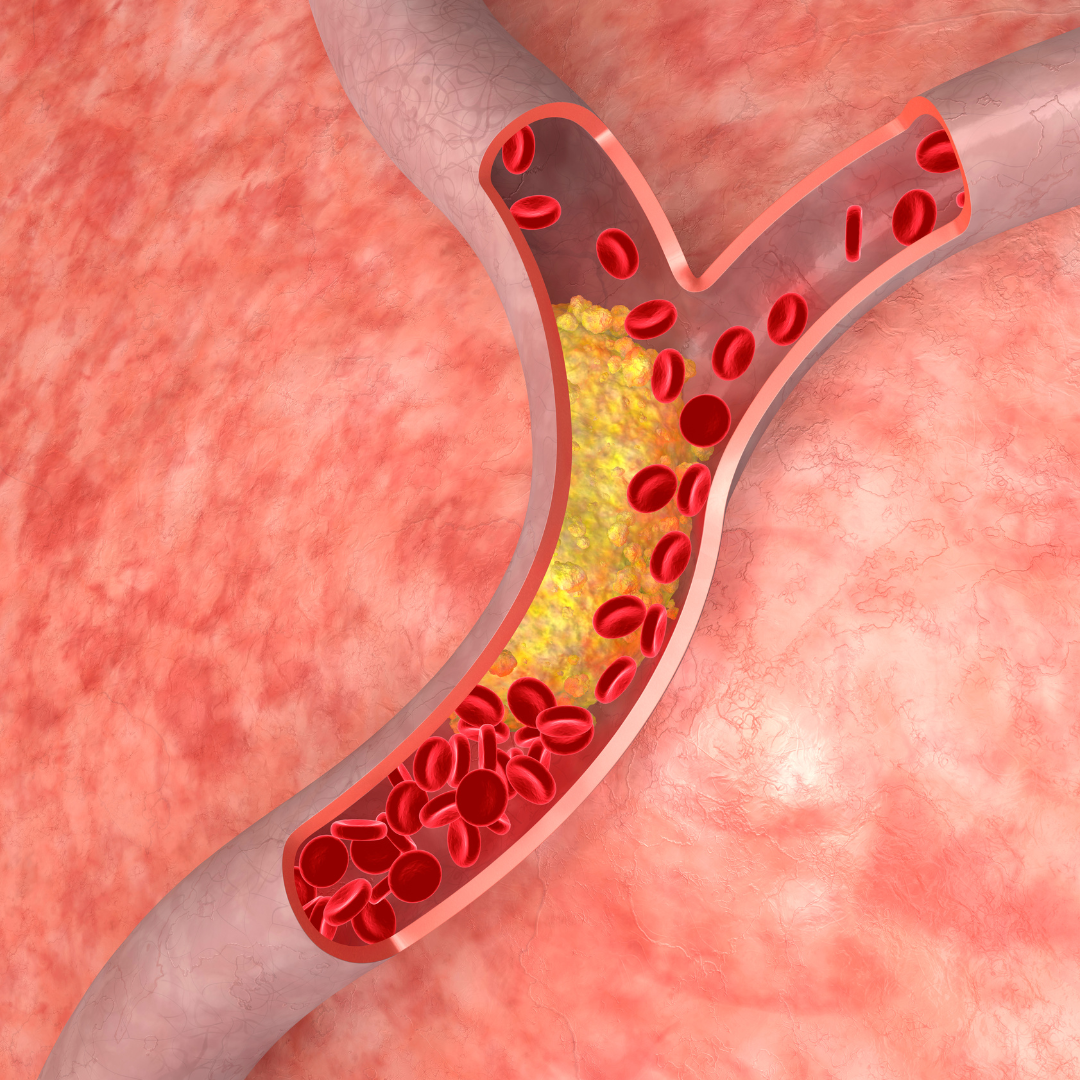Food and Cholesterol
Scientists have found that dietary cholesterol has a negligible effect on blood cholesterol levels. Cholesterol in the diet is mostly sourced from goods derived from animals. Though they contribute to your daily cholesterol intake, these meals also supply protein and other vitamins and minerals.
For most people, eating a reasonable amount of these items does not dramatically raise blood cholesterol levels, according to studies. Moreover, dietary cholesterol has a far less effect on blood cholesterol levels than plant-based lipids. Consequently, it can be helpful to manage one’s overall health by consuming a diet rich in fruits and vegetables and low in saturated fat.
In addition to the amount of dietary cholesterol, the types of carbohydrates eaten are also important. Refined carbohydrate-rich foods, such as white breads and sugary snacks, can considerably increase LDL (“bad”) cholesterol levels, independent of dietary or total fat consumption.
Even if some animal products are still consumed in moderation, optimal heart health may be maintained through the use of complex carbohydrates such as whole grains. In addition to watching what you eat, frequent exercise and a healthy body weight are critical factors in keeping blood lipid profiles within normal levels.
A Brief Review of Dietary Cholesterol
Cholesterol is found in animal products such as eggs, cheese, and meat. All plant-based foods (cereals, fruits, and vegetables) are devoid of this substance. Cholesterol is a building block for hormones and cell membranes in the body.
Despite its vital role in these activities, consuming an excessive amount of dietary cholesterol has been linked to an increased risk of cardiovascular disease due to its effect on blood levels of LDL (low-density lipoprotein).
When other factors like heredity, lifestyle (including physical activity and smoking), and trans fat intake from processed foods are taken into account, it is clear that dietary cholesterol has a negligible effect on blood cholesterol levels. Yet that doesn’t imply you can go crazy on dietary cholesterol without any repercussions. If you’re an adult and you want to stay healthy, the American Heart Association says you shouldn’t consume more than 300 milligrammes of cholesterol every day from food.
Influence on Good and Bad Cholesterol
Building up of Low-Density Lipoprotein (LDL), also known as “bad” cholesterol, in the arteries can result in cardiovascular problems. The blood cholesterol level LDL rises when people consume foods that are heavy in saturated fat and trans fat. Instead, High-Density Lipoprotein (HDL) is regarded as “good” cholesterol since it removes excess cholesterol from your arteries and returns it to your liver to be reprocessed or eliminated.
Raise your good cholesterol (HDL) by eating more healthy foods including fresh produce, nuts, fish, and skinless poultry. Physical activity, in addition to dietary improvements, has been linked to improved lipid profiles (increased HDL and decreased LDL).
The risk of cardiovascular disease can be lowered with regular exercise by increasing the amount of oxygenated blood that flows through the body. Moreover, stress hormones, like cortisol, can contribute to elevated LDL levels over time, and exercise helps boost the creation of endorphins, which help lower these chemicals.
Connection to Increased Risk of Heart Disease
Among both sexes in the United States, heart disease is the leading killer. Inadequate cholesterol levels are a key risk factor for cardiovascular disease. Knowing how dietary cholesterol might alter blood cholesterol levels is crucial.
The effects of dietary cholesterol on blood cholesterol levels have been studied and found to be real, however they are not as significant as once thought. Eating meals high in dietary cholesterol has been linked to a 10-15% increase in total blood cholesterol, albeit this increase may be affected by other health variables like genetics or preexisting illnesses. On the other hand, saturated and trans fats are typically far more important factors than dietary sources alone in causing high blood cholesterol.
In conclusion, when trying to prevent heart disease through dietary change, it is vital to be cautious of the quantity of dietary cholesterol you ingest, but it is more necessary to pay attention to other sources of bad fats.
How Your Food and Activity Choices Play a Part
Maintaining a healthy cholesterol level can be accomplished by careful attention to both diet and lifestyle choices. The best way to keep your cholesterol levels in check is to eat a nutritious diet that’s low in saturated and trans fats and high in fibre.
Moreover, both low-density lipoprotein (bad) and high-density lipoprotein (good) cholesterol levels can be maintained with regular exercise and avoidance of tobacco use. Those who have been diagnosed with high blood cholesterol should limit their consumption of saturated fat and dietary cholesterol rich meals. Red meat, processed meats like bacon or sausage, full-fat dairy products like butter or whole milk cheese, fried foods like French fries or fast food burgers, and some egg dishes like omelettes are all to be avoided.
The American Heart Association suggests switching to plant-based proteins like beans, legumes, nuts, fish high in omega-3 fatty acids, whole grains, fruits, vegetables, low-fat dairy products, unsaturated vegetable oils like olive oil, avocados, olives, soybeans, tofu, edamame beans, or tempeh in place of these high-cholesterol foods.
Cholesterol from Plants
Nuts, soybeans, and avocados are just a few examples of the many plant-based foods that contain cholesterol. Consuming nuts on a regular basis has been associated with reduced cholesterol levels because of the polyunsaturated fat they contain. You can find fibre, protein, and healthy fats (both monounsaturated and polyunsaturated) in soybeans.
Cholesterol levels in the blood can be lowered by eating soy products like tofu and edamame. You can reduce your LDL cholesterol by eating avocados because they are high in fibre and healthy unsaturated fats. Beta-sitosterol, found in avocados, is a phytosterol that inhibits the body’s uptake of dietary cholesterol. Olives, complete grains including oats and barley, flaxseed oil, sunflower seeds, and plant sterol/stanol-fortified margarine spread are other good plant-based sources of dietary cholesterol. Keeping your blood cholesterol levels low over time might be aided by eating these plant-based foods on a regular basis.
Credible advice from experts
Dr. Pankaj Kumar, the best nutritionist in Delhi, says that the kind of cholesterol in meals has a small effect on blood cholesterol levels. Total and low-density lipoprotein (LDL) cholesterol can be influenced by dietary cholesterol. To a greater extent than dietary cholesterol, however, LDL levels are affected by saturated and trans fats.
As a means of maintaining normal LDL levels, Dr. Pankaj Kumar advises cutting down on saturated and trans fats in the diet. Most people can safely consume some meals with moderate amounts of dietary cholesterol every day; nevertheless, it is necessary to restrict your intake of foods with high amounts of dietary cholesterol such as egg yolks and liver. Salmon and tuna are two examples of fatty fish that are high in the omega-3 fatty acids that have been shown to help reduce LDL.
Conclusion
Dietary cholesterol’s potential dangers to human health are currently debated. An increased risk of cardiovascular disease and stroke has been related to high blood cholesterol levels, however this may not be directly attributable to cholesterol in the diet. Poor health in general and an uptick in cardiovascular disease and stroke risk may result from a diet high in unhealthy foods that are also high in cholesterol. In addition, a high-cholesterol diet has been linked to obesity, diabetes, and even some forms of cancer.
Notwithstanding the controversy surrounding the effects of cholesterol in the diet on blood levels, it is still necessary to follow a diet low in saturated fat and cholesterol as part of an overall healthy lifestyle. Keeping your weight in check and lowering your blood fat levels with consistent exercise is a win-win. If you are worried about your own risk for developing a cardiovascular illness or other linked conditions, it is also necessary to speak with a healthcare professional. Individuals can play a vital part in ensuring their long-term health by adhering to these measures.






